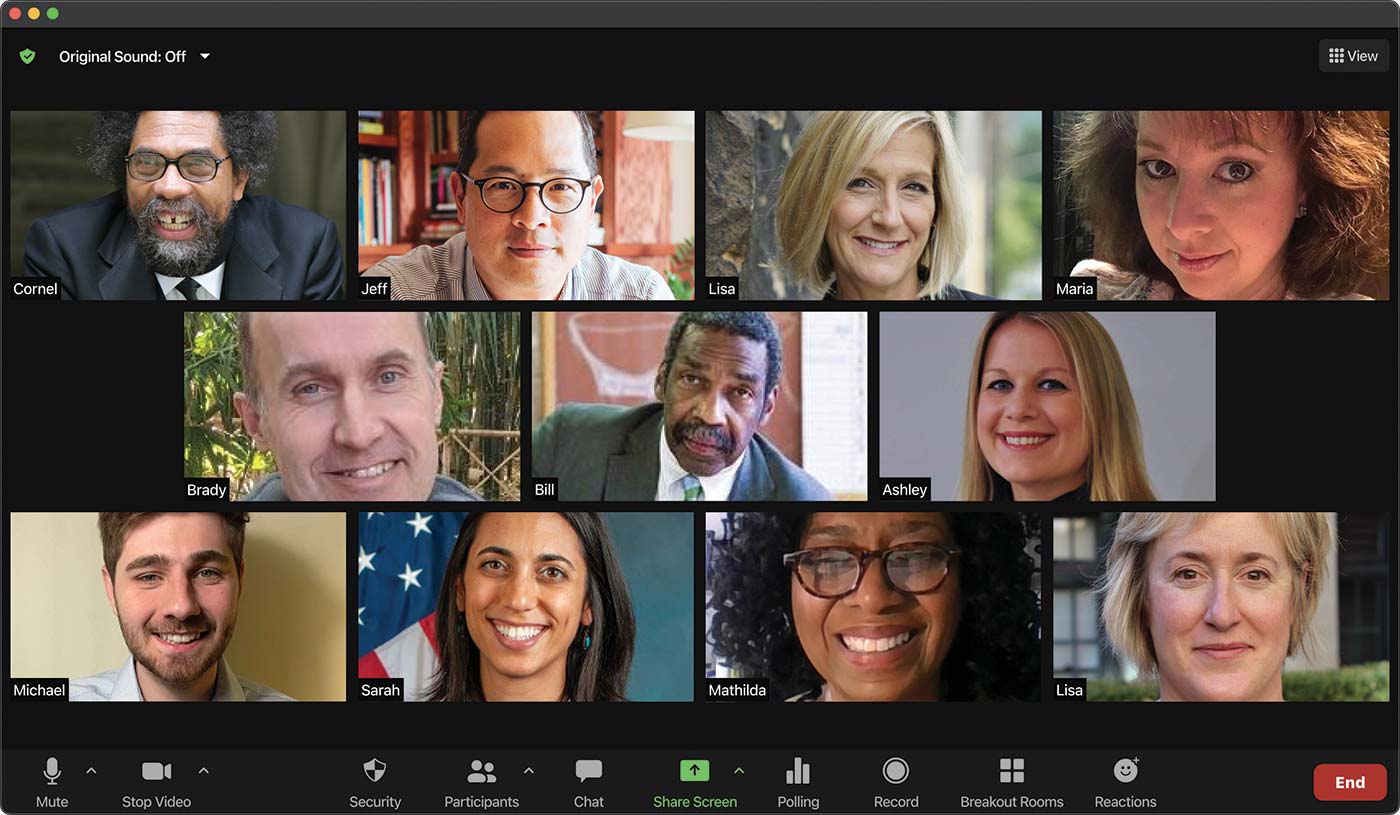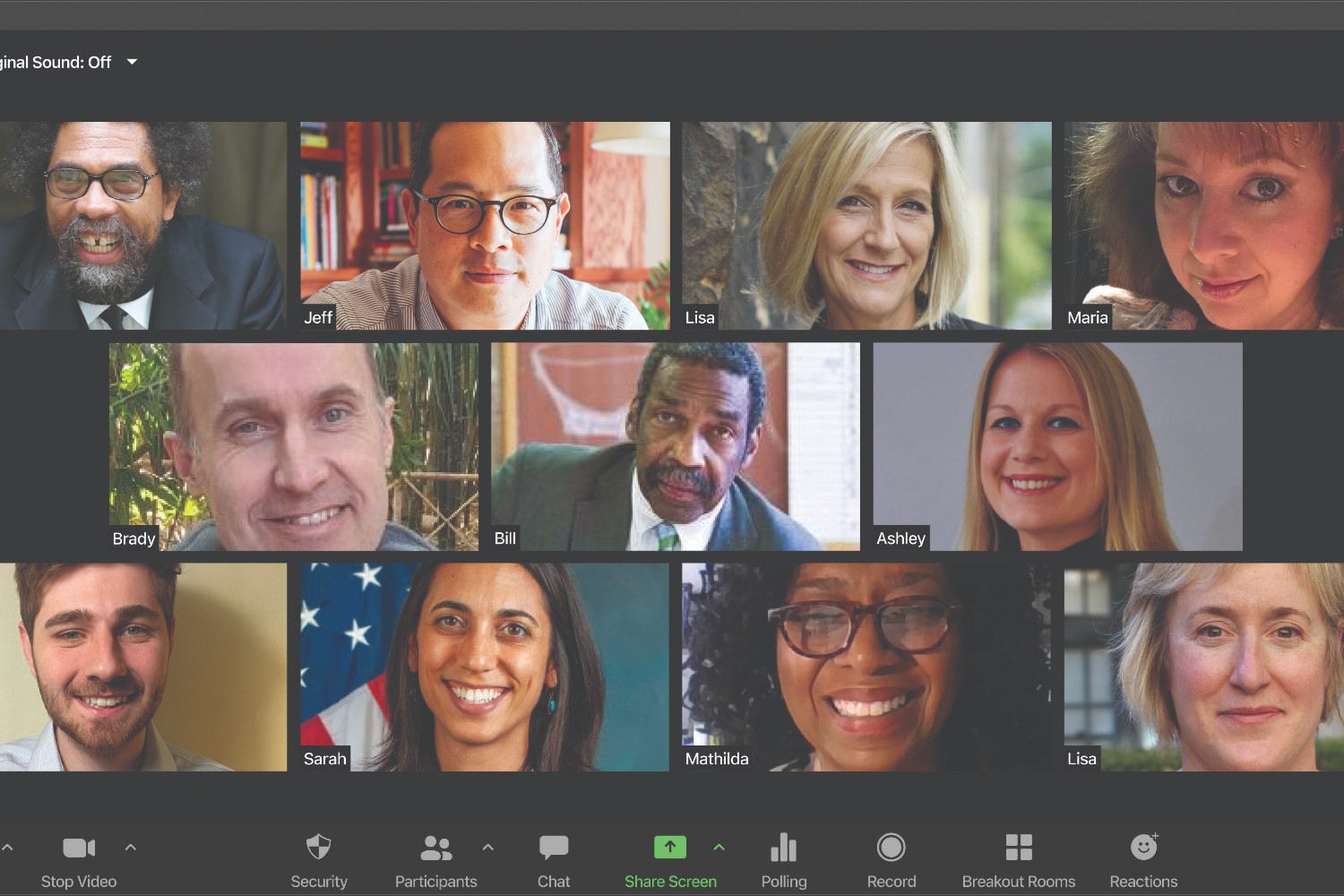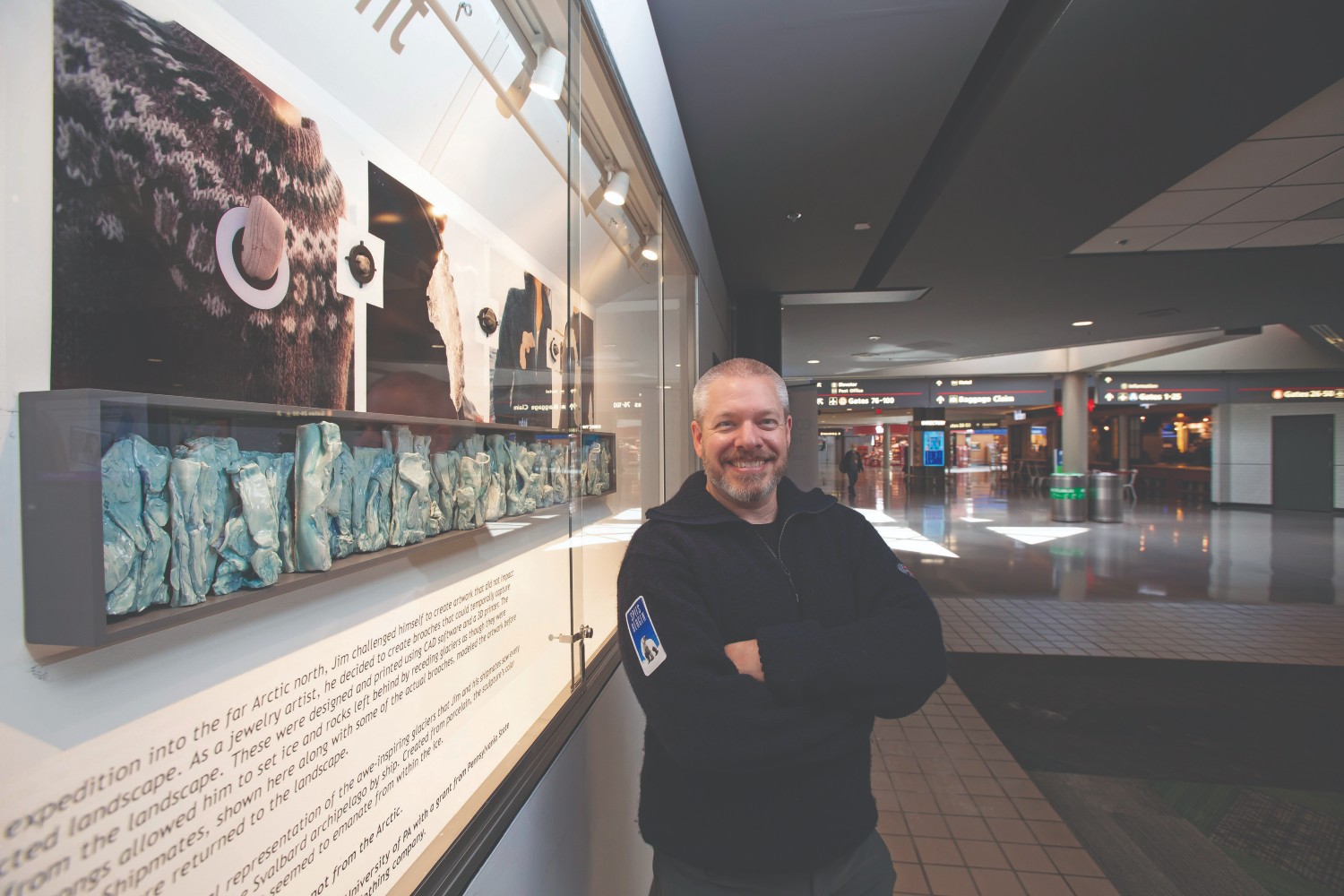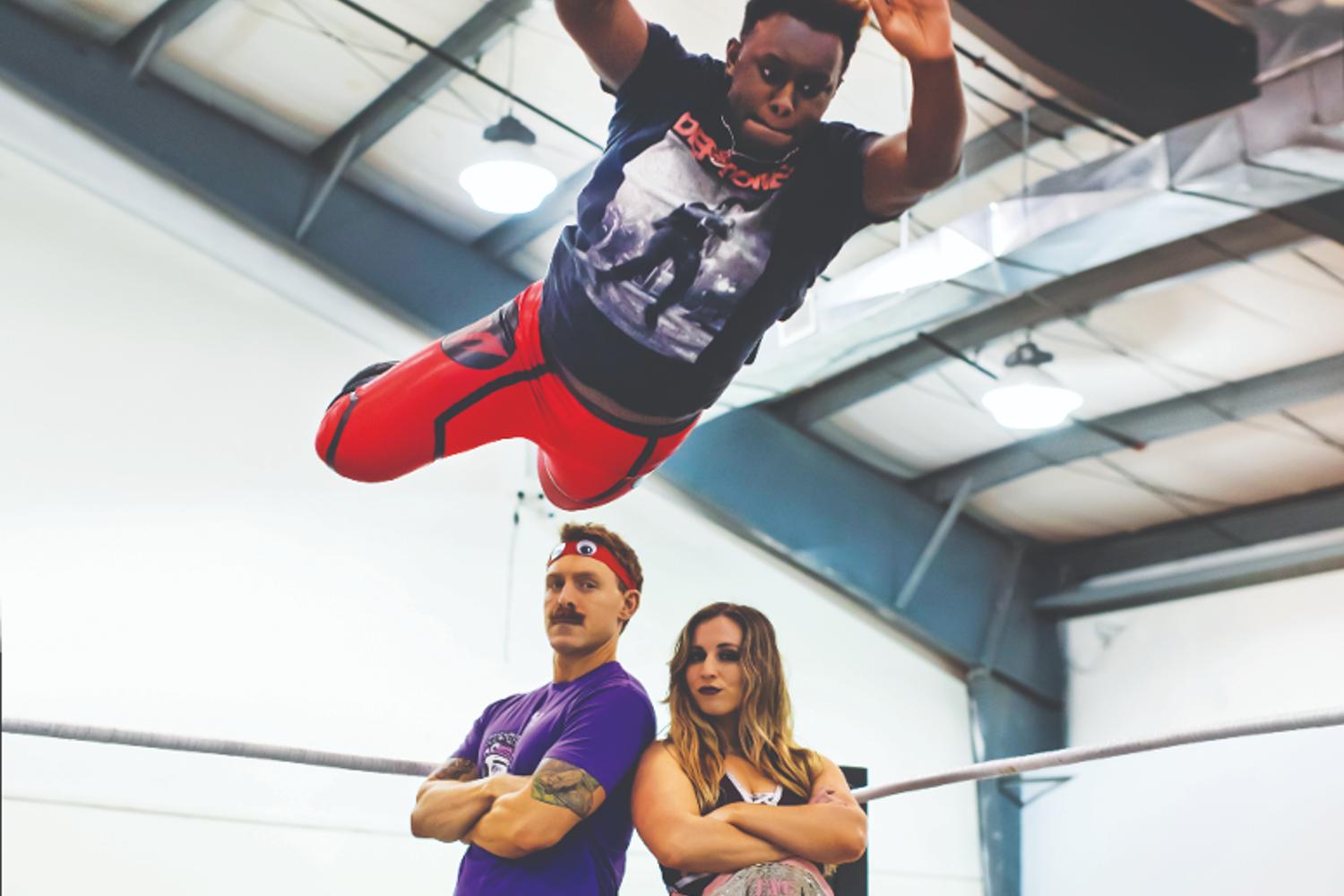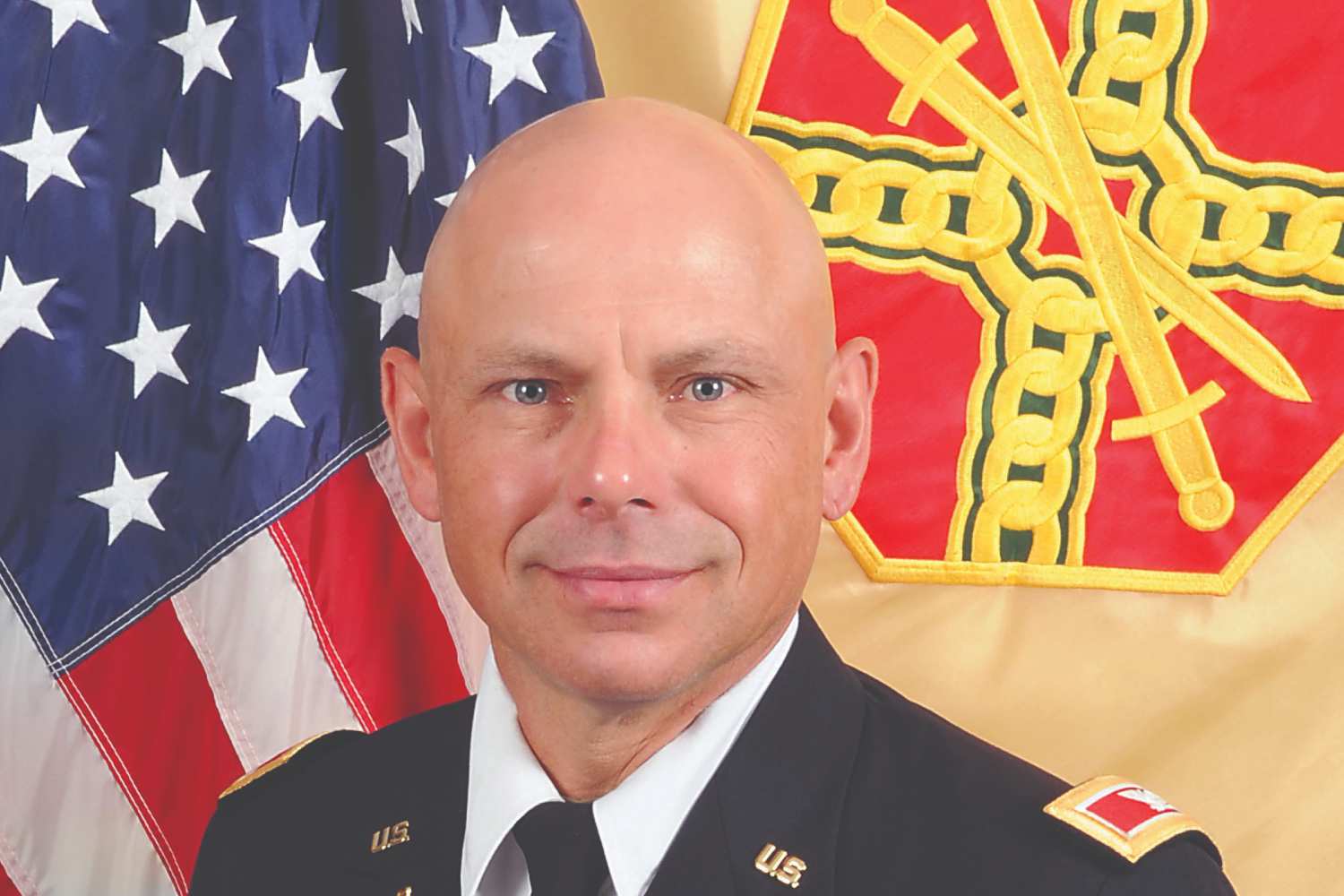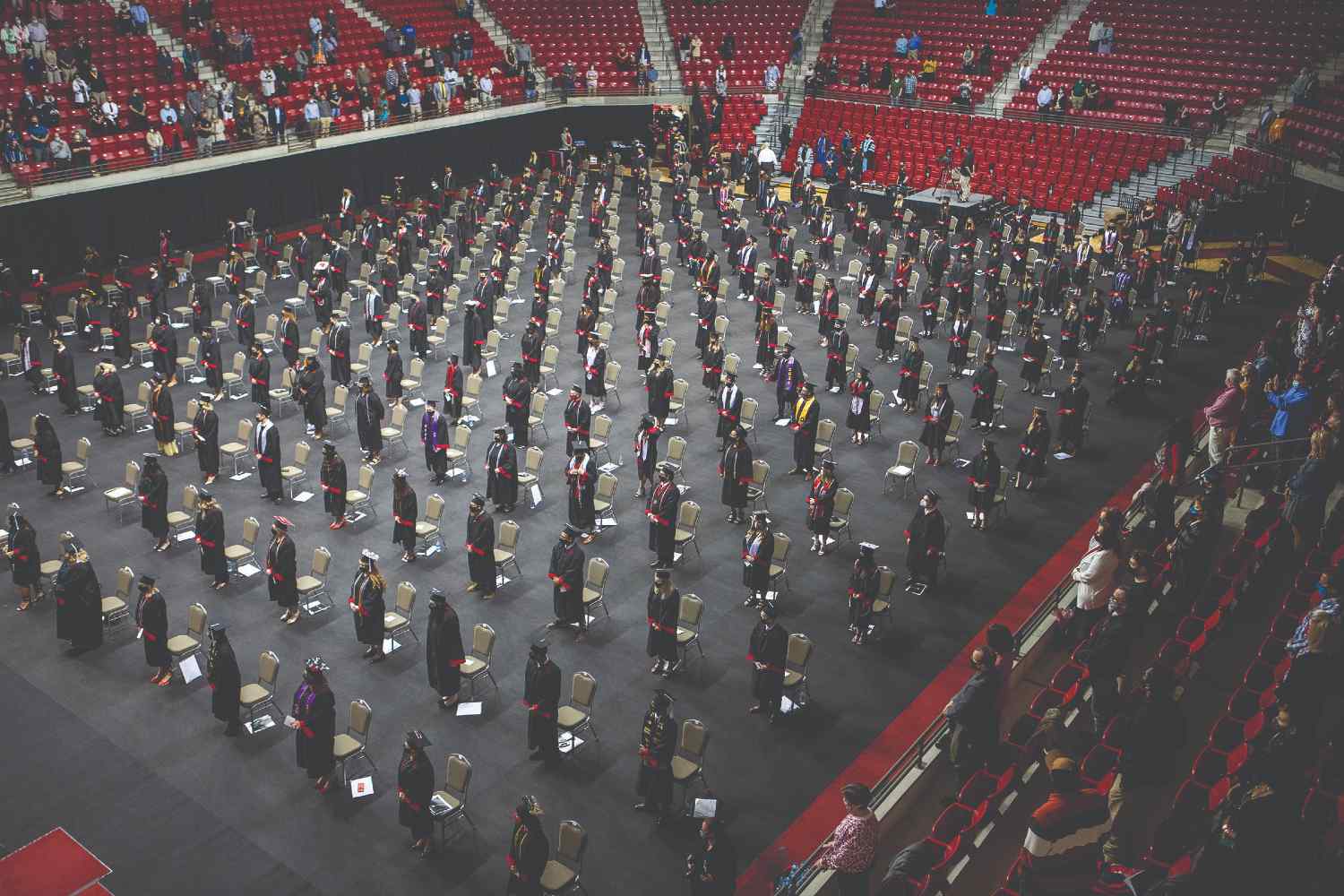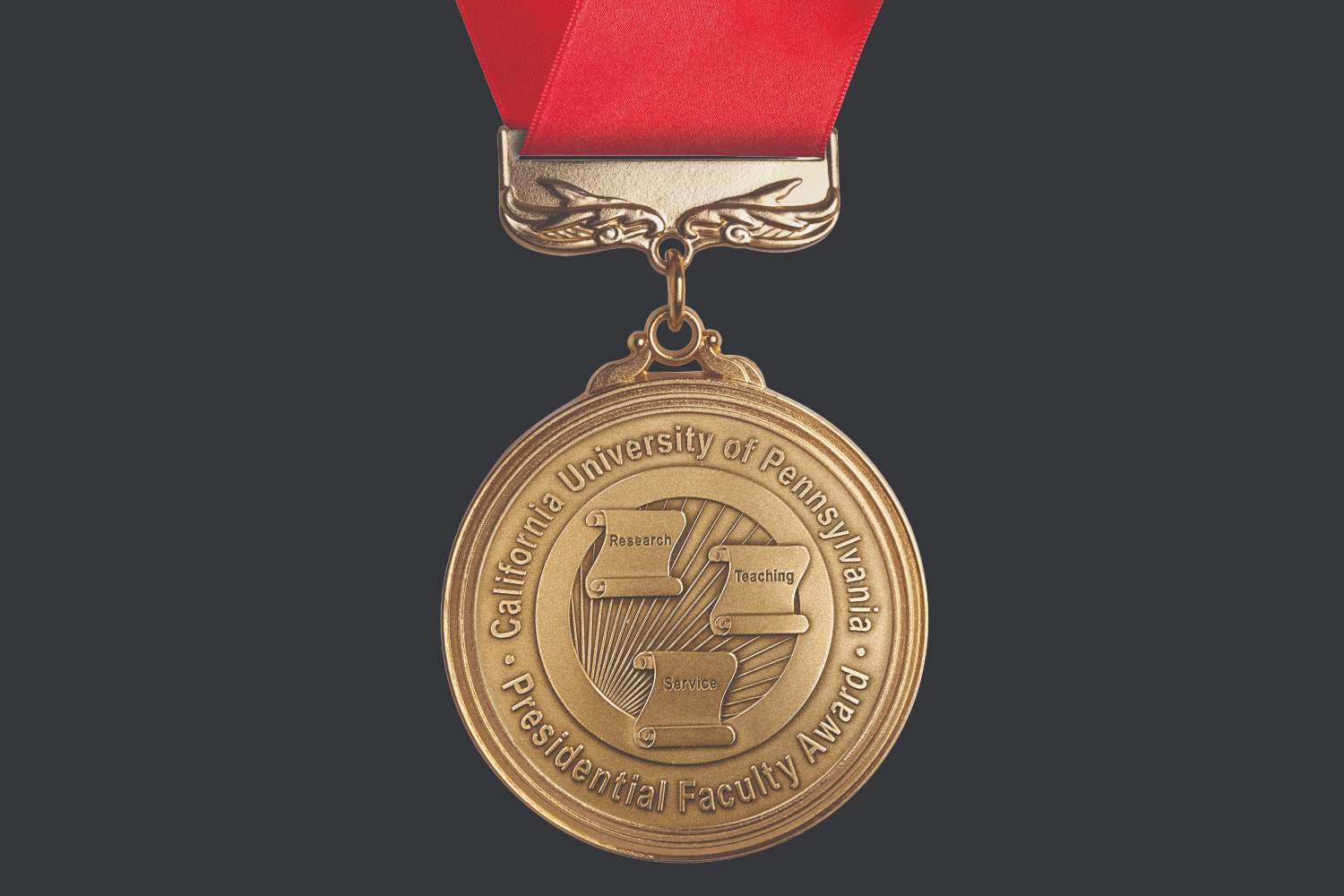Cal U logged in to innovation this spring. With some students back in the classroom and others continuing to learn remotely, faculty explored new ways to bring important voices to campus. And despite pandemic protocols, they were able to showcase student scholarship and talent, too.
One lesson learned during this “hybrid” year: Virtual outreach has its benefits.
Coast to Coast
For more than 15 years, Cal U has contributed to hip-hop scholarship, hosting an annual on-campus event that invites speakers to discuss the genre’s evolving artistry and multi-layered impact.
The Hip-hop Conference took a pandemic year off in 2020, but it returned this spring on Zoom. The virtual format was necessary to mitigate risk, but also fitting, says conference founder Dr. Kelton Edmonds, a history professor and director of African American Studies at Cal U.
“One of the important components of hiphop is innovation,” he says. “Innovation means taking out a piece of cardboard and inventing breakdancing. It means using turntables, beatboxing. Hip-hop is innovative and adaptive.”
So Edmonds and conference co-organizer Dr. Ayanna Walker innovated. They invited Dr. Cornel West, a ground-breaking author and professor, and Jeff Chang, an author and cultural critic, to be the conference’s featured speakers.
During their virtual presentation, the two offered their perspectives on “Hip-hop, Social Justice, Politics and the Pandemic.” Cornel joined in from the East Coast, Chang from the West.
"The virtual format had its advantages. We had someone traveling in Mexico who was able to ask a question. People from the Pacific Northwest ... were able to participate.”
- DR. KELTON EDMONDS
Two nights later, a second panel debated “What’s Next for Hip-hop — Artistically and Academically?”
“It is a great conference, but maybe a bit of a hidden gem,” Edmonds says.
“Of course we like it when people can visit our wonderful campus. They’re always surprised by how beautiful it is. But the virtual format had its advantages. We had someone traveling in Mexico who was able to ask a question. People from the Pacific Northwest who know Jeff Chang were able to participate.”
Organizers of other virtual events report similar upsides.
This spring, Cal U’s theater program featured a livestream performance of Dear Edwina.
The musical was recorded and streamed through ShowTix4U as part of a licensing agreement. Theater professor Dr. Michele Pagen thinks the arrangement may continue even after audiences return to Steele Hall.
“It increases our audience base,” she says of the virtual option. “We can have a longer run. Our runs are usually four or sometimes five performances, and it’s one weekend. If you’re not available, you miss the show.”
Although it’s too soon to finalize plans, Pagen is thinking ahead to the 2021 holiday season and her students’ performance of Elf the Musical.
Ideally, she says, “we’d perform it live in Steele Hall the weekend before Thanksgiving, but it would air on-demand all during December. Families could watch it however many times they want, and it will get Cal U and Cal U theater out there to more people.”
ACCESS AND OPPORTUNITIES
A lineup of academic events went virtual in 2021, too, including a new semester-long Graduate Speaker Series, Women’s History Month in March and the Strike-A-Spark showcase of student research, scholarship and creative activity in April.
“Definitely, there was more access and more opportunities to engage with students’ work,” says Dr. Azadeh Block, director of the Center for Undergraduate Research, which organizes the annual showcase.
Instead of giving poster presentations in the Convocation Center lobby, more than 100 students submitted videos describing their projects. In all, 126 submissions were organized, captioned and uploaded to a playlist on Cal U’s YouTube channel.
In-person presentations have a special energy, but on-demand video fosters a different type of connection. “An asynchronous option would be ideal for our online students,” Block says.
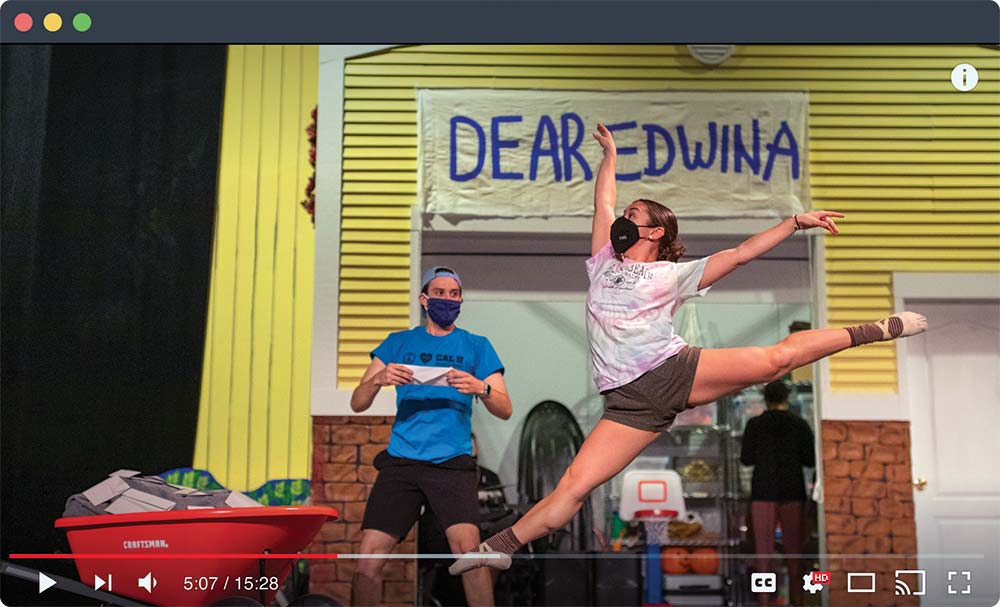
In March, Dr. Marta McClintock-Comeaux, director of women’s studies, organized a variety of events, including a panel discussion called “Women Paving the Way.” The annual Serene Institute and Audrey-Beth Fitch Women’s Leadership Conference also were held virtually.
“We had very strong attendance among faculty, staff and students at our events this year,” McClintock-Comeaux says. “The events were 100% easier to organize, and there was a cost savings on the speaker side, because it requires less time for them to participate virtually.
“Students were more easily able to participate in the leadership retreat because it required two hours per day instead of an entire weekend.”
As Cal U looks to continue a safe, prudent return to normal operations this fall, the University takes lessons learned during more than a year of adaption into the 2021-2022 academic year.
Walker and Edmonds reflect on a few: A record audience of 200 viewers who watched the Hip-Hop Conference’s keynote panel live, and 1,500 more who have seen it on Cal U’s YouTube channel.
“It was our best attendance,” Walker says. “And for the keynote speakers to have 1,000 views in just the first two days was very significant.
“We were able to market the conference across the State System, something we couldn’t do if it was held in person. Professors who want to show this in their classes as a way to talk about current events will be able to do that.
“A lot more people filled out a survey about the event, so we can measure how people felt about it.”
Edmonds sees the utility of virtual technology. “It is a great marketing tool. To the extent that we are able, we should include an option to view this event online moving forward.”

